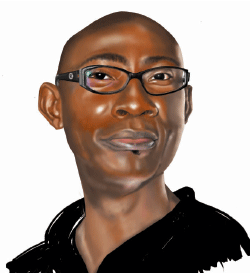It had been a conjecture all along that Boko Haram insurgents could penetrate the South East. But the doubt and the speculation ended on Sunday, June 15 when six persons suspected to be Boko Haram suicide bombers were arrested trying to plant bombs in a church, Winners Chapel, on Port Harcourt Road, Owerri.
For the Imo State Commissioner of Police, Adbulmajid Ali, to say that the jihadists have slithered into the state underscores the danger looming in the South East and the need for those in a position to fight it to rise to the challenge before it is too late.
Six persons had gone to the church to plant the bombs in the morning when worshippers were being awaited, but were sighted by security men who alerted the Pastor, Moses Oyedele, who told them to inform the police.
The police anti-bomb squad arrested the six persons and the bombs were detonated. Police said the suspects confessed to be suicide bombers. Here lies my concern.
A politician from the South East, who was recently elected an official of the All Progressives Congress (APC), told me how panic stricken Governor Rochas Okorocha was on Saturday, June 14 when his aides broke news of the attempted bomb explosion to him in Abuja.
Okorocha hurriedly left for Owerri to have first-hand information on the development and to reassure the people of the preparedness of the government to guarantee security. He held a press conference where he condemned the action and lauded security operatives for their quick intervention in what would have presaged numerous bomb explosions in Imo.
However, less than a day after the Owerri saga, a bigger ugly tale of insecurity and looming Boko Haram rehearsal in the South East emerged with the arrest of 486 terror suspects in Abia by troops from the 144 battalion of the army in Asa.
Security agents said the suspects, aged 16 and above, who hail from Kano, Taraba and Jigawa, claimed they were heading for Port Harcourt to look for work.
Abia State Commissioner for Information, Eze Chikamnayo, held a news conference with Lt. Col Rasheed Omolori who led the team that intercepted the suspects in a motorcade of 35 Toyota Hummer buses around 2am on June 15.
Chikamnayo said six buses were recovered from the suspects which have been impounded at the army base in Asa.
The buses – marked JIGAWA RNG 98 A, OSUN RLG 176 XA, KANO AF 411 DAL, LAGOS BDG 487 XK, ABUJA EP 86 ABC and BAUCHI ZAK 48 XA – were intercepted between Arungwa junction and Imo River Gate on the Abia/Rivers boundary on the Port Harcourt-Enugu expressway.
Shocked over the development, four South East Governors – Willie Obiano (Anambra), Sullivan Chime (Enugu), Martins Elechi (Ebonyi) and Theodore Orji (Abia) – headed for Aso Rock on Monday, June 16 to consult President Goodluck Jonathan on ways to nip the looming danger in the bud. Okorocha was absent.
After the meeting, Obiano told reporters: “No, they (Boko Haram) cannot get there. I can assure you of that. We will not allow that to happen. I cannot tell you in any material details about the bombs found or not found (that is the Owerri saga).
“All I can assure you is that we are very alert in the South East and watching what is going on. I can assure you that Boko Haram cannot come to the South East.”
I am worried that the unity required of governors from the South East to tackle this danger is lacking. It beats one’s imagination that Okorocha was missing during that important gathering with Jonathan, having earlier witnessed what would have been a devilish disruption of the peace he has worked so hard to maintain in Imo in the past three years.
If Okorocha was aware of that meeting of umu nne (brothers) with Jonathan on the security of the lives and property of our kit and kin, it should have taken precedent over any other engagement.
Instances abound where Okorocha would send his Deputy, Eze Madumere, to represent him and one wonders why there was no such representation on this occasion.
Again, Obiano’s comment which suggested he and the other three governors did not have full information on the arrest of suicide bombers in Owerri the previous day says a lot about their collective boast that what Boko Haram is doing in the North cannot happen in the South East.
Just last week, the Secretary General of Ohanaeze Ndigbo, Joe Nworgu, complained that a crack in the South East Governors’ Forum has not helped the region’s participation in the national conference in Abuja.
Is that an indictment on those we say are governing us? Many other prominent Igbo feel the way Nworgu does, but in whose interest will that be? Whose interest are our governors serving?
Part of the reason Boko Haram has got out of hand in Borno is because the other parts of the North saw it first and foremost as a Borno matter. But slowly and steadily, the insurgents were vending their horror in other parts of the North and beyond. Now, it is difficult to put a handle on their activities.
The most stupid thing South East governors can do is allow individual political interest to affect the collective good of the people. Soldier go, soldier come, barrack remains. The South East remains our barrack and we must do everything within our power to ensure its inviolability, notwithstanding the political allegiance and philosophy of leaders.
Now that Boko Haram has come to the South East, are we going to fold our hands and allow our people to get consumed by insurgents because those we elected to protect us are crazy about their political leaning? God forbid!
My charge to South Easterners is for them to be as security conscious as possible now and to see the security of their environment as their primary role before it becomes the responsibility of the government.
That way, they will ward off any Boko Haram attack.











